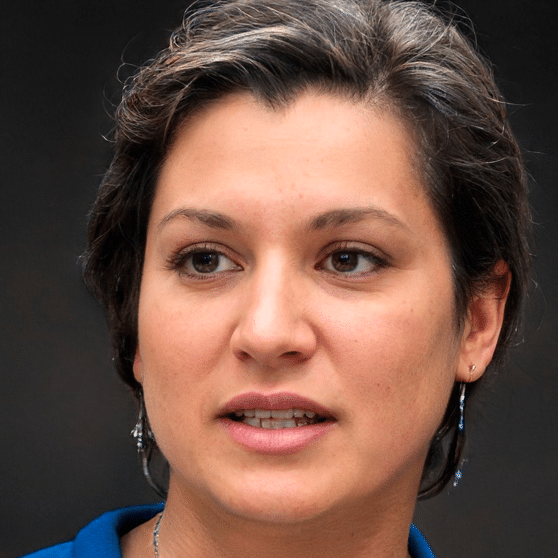
Our 9 Favourite Online Resources for Inclusive Education
As noted in UN declarations of social development, new conceptual principles of social arrangement are the modern society’s ability to develop based on tolerance, tolerance, condemnation of discrimination, respect for human diversity, equality of opportunity, solidarity, and security. These approaches are the main goal of social development – the creation of a “society for all” that provides protection and full integration into society of all segments, including people with disabilities. The basis of such integration provides equal access to quality education…
Online Resources for Inclusive Education
The principle of accessibility, which is leading in a holistic approach to modern social policy and formulated on the basic respect for human rights, as set out in a resolution of the UN General Assembly of 12 December 1997 as a priority – to promote ensuring equal opportunities for people with disabilities health. This principle determines the transfer of emphasis from medical aspects of disability, care for people with mental and physical disabilities to violations, protection, and assistance in adapting to the environment for the reform of society itself, which must adapt to the needs of each individual.
If you need help with research paper, you can use different sites and books and ask others to give you the necessary information. Since the 90s of the twentieth century. The leading model of modern social relations in relation to people with disabilities, the theory of inclusion, is defined. According to one of the leading Dutch researchers, K. Reisweik, the use of the social model of inclusion in the educational field will contribute to the following.
- development of the child’s abilities;
- recognition that normal development is not a generally accepted “norm”;
- meeting special needs;
- creation of a support system;
- the functional approach to treatment and training;
- parental involvement in the treatment and education of their children.
Our 9 Favourite Online Resources for Inclusive Education
Let’s find out what are the best resources for inclusive learning around the world. Here are some of the brightest examples.
- Wrightslaw Special Education Law and Advocacy. This site provides information and knowledge about education law and children with disabilities. In addition, it offers a large legal library and training. You can also learn more about Individual Education Plans, what to expect at IEP meetings, revisions, and goal-setting.
- Inclusive Solutions have psychologists who specialize in inclusion. They develop strategies and ideas for effective inclusion. With international knowledge, they adapt them to the UK. The idea of inclusive learning is really important for this team. Currently, they are providing training nationally and internationally with a wonderful team of associates.
- ParaEducate: Resources for Special Education. The ParaEducate blog is posted weekly during the academic school year from August to May. They also have materials for use with students with disabilities in their publications. Also, with their assistance, conferences on inclusive education are held for all comers.
- LearningApps – a site for learning information in small modules, a small but solid project. Learn and help your children learn, choose exercises for your level. If desired, you can donate and support the project.
- ISN – is a web-based educational resource that promotes inclusive education. This resource is internationally recognized. ISN’s mission is “to encourage, embolden and empower people to design and implement effective inclusive schools, by sharing insights and best practices and by providing opportunities for connection.”
- CTL – here you can find good ideas on how to organize work and the learning process, what you need for it etc. If there is a need for coursework writing help you surely can ask for it. The site also has a number of useful links to other resources for raising awareness in inclusive education.
- NCLD is for children and adults nationwide. NCLD was founded in 1977. This site provides information on inclusion, and thus raises issues of inclusive education in society. There are tasks for children and ways to eliminate learning disabilities in children.
- Ollibean is an educational website with resources on creating a more socially and inclusive world. There’s a fantastic blog, and inclusion news, and “Ollibean TV” videos. And even a shop where you can buy things and support the project and inclusiveness.
- Kristie Pretti-Frontczak runs a professional company called B2K Solutions. It’s devoted to “an early childhood {r} evolution where every child has the support they need to thrive at school, and in life.” Her blog on the B2K focused on early childhood inclusion. There is also information on professional development for educators. The site has everything from challenging and changing the system, to early childhood assessment, and more.
Manifestation of Discrimination Against Children
It is worth summarizing all the above with the official position of the European community on elimination bias and discrimination against persons with disabilities psychophysical development. It says that education should be provided to everyone in all secondary schools with no exception and no child must be discriminated against in any form. This position implies that a disability is not an obstacle to education, but discrimination is. In some cases, in accordance with the law, children with disabilities are required to attend special schools, which is necessary segregation officially approved. The modern worldview model of social order indicates progress towards people with disabilities’ psychophysical development.

Charlotte Banks is a freelance blogger and an educator. She mostly blogs about education-related topics, including tips for teachers, students, and parents. She’s also one of the writers and an experienced essayist. She spends her free time blogging and working to develop her skills as a writer as much as possible. Follow her on Twitter.